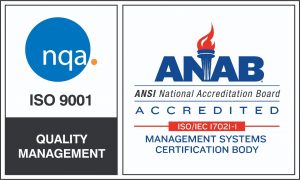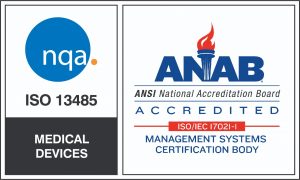 Companies today are under a lot of pressure to create high quality electronic products. Modern day consumers expect more features and options than ever before. In order to be successful, companies need to keep up with their competition. This means developing new products at an alarming rate.
Companies today are under a lot of pressure to create high quality electronic products. Modern day consumers expect more features and options than ever before. In order to be successful, companies need to keep up with their competition. This means developing new products at an alarming rate.
It’s not enough to simply have good ideas. You need to be able to turn those ideas into functioning products. Unfortunately, many companies find this difficult.
Once they begin the development process they find themselves in an abyss of complicated regulations and manufacturing challenges. At this point, they probably need some help. Partnering with a qualified contract manufacturer can help these businesses turn their ideas into reality.
Electrical and Mechanical Design
If possible, it’s a good idea to enlist the help of a contract manufacturer during the design process. This helps locate areas of your design that could benefit from improvement. This can significantly reduce the cost of production and improve the quality of the finished product.
A contract manufacturer acts as your partner throughout the design process, providing you with knowledge backed by years of experience. This is perhaps the biggest benefit of working with a contract manufacturer.
Sometimes, small details get missed during the design process. These details could mean the difference between a functioning product and the need to start over. A contract manufacturer provides a second set of eyes for design plans, ensuring nothing gets missed.
Hardware Development
During hardware development, you move from simply talking about your product to creating the BOM, PCB layout, and mechanical parts. It’s important to fully test each component at this stage. This helps locate potential issues before you move into full scale production.
A contract manufacturer can help with testing of a wide range of parts and components.
Documentation
An often overlooked requirement, documentation is important for the maintenance of your design. Depending on the intended use of your finished product you might need a wide range of documentation including product manuals, start-up guides, and maintenance manuals. A contract manufacturer can help you determine the documents required for your specific product.
Procurement
It can be tempting to go with the cheapest option when procuring components. Unfortunately, many of these options are poor quality counterfeits. Using counterfeit components can negatively affect the quality of your finished product. It can also affect your compliance with industry regulations. It’s important to work with someone who understands the importance of using quality components.
Production
At this point, it’s a good idea to hand off your project to an experienced contract manufacturer. Means Engineering has years of experience working with a number of companies across a wide range of industries. We work directly with you throughout all parts of production to ensure high quality, reliable finished products.
 Companies everywhere strive to keep costs low. Reducing costs on manufacturing increases profits and allows for better allocation of funds. When looking into ways to cut costs, one of the decisions business owners should consider is whether or not to outsource some or all of their production.
Companies everywhere strive to keep costs low. Reducing costs on manufacturing increases profits and allows for better allocation of funds. When looking into ways to cut costs, one of the decisions business owners should consider is whether or not to outsource some or all of their production. At Means Engineering, we understand the importance of reliable and capable manufacturing services, especially when it comes to the Aerospace and Defense industries. Products for these industries must meet strict requirements for quality and reliability.
At Means Engineering, we understand the importance of reliable and capable manufacturing services, especially when it comes to the Aerospace and Defense industries. Products for these industries must meet strict requirements for quality and reliability. Product testing is important for a number of reasons. Testing allows an organization to ensure the quality of new products before they go to market. It also helps locate areas that could benefit from improvement. Fixing these issues before products hit the shelf helps prevent possible loss of customers and reputation.
Product testing is important for a number of reasons. Testing allows an organization to ensure the quality of new products before they go to market. It also helps locate areas that could benefit from improvement. Fixing these issues before products hit the shelf helps prevent possible loss of customers and reputation. Organizations that wish to remain successful need to learn to work smarter not harder. This is easier said than done. Businesses often become stuck in their ways, unable to notice the opportunity for improvement. Creating a continuous improvement process can help. This process involves a number of ongoing activities focused on improving products, services, and/or processes.
Organizations that wish to remain successful need to learn to work smarter not harder. This is easier said than done. Businesses often become stuck in their ways, unable to notice the opportunity for improvement. Creating a continuous improvement process can help. This process involves a number of ongoing activities focused on improving products, services, and/or processes.

